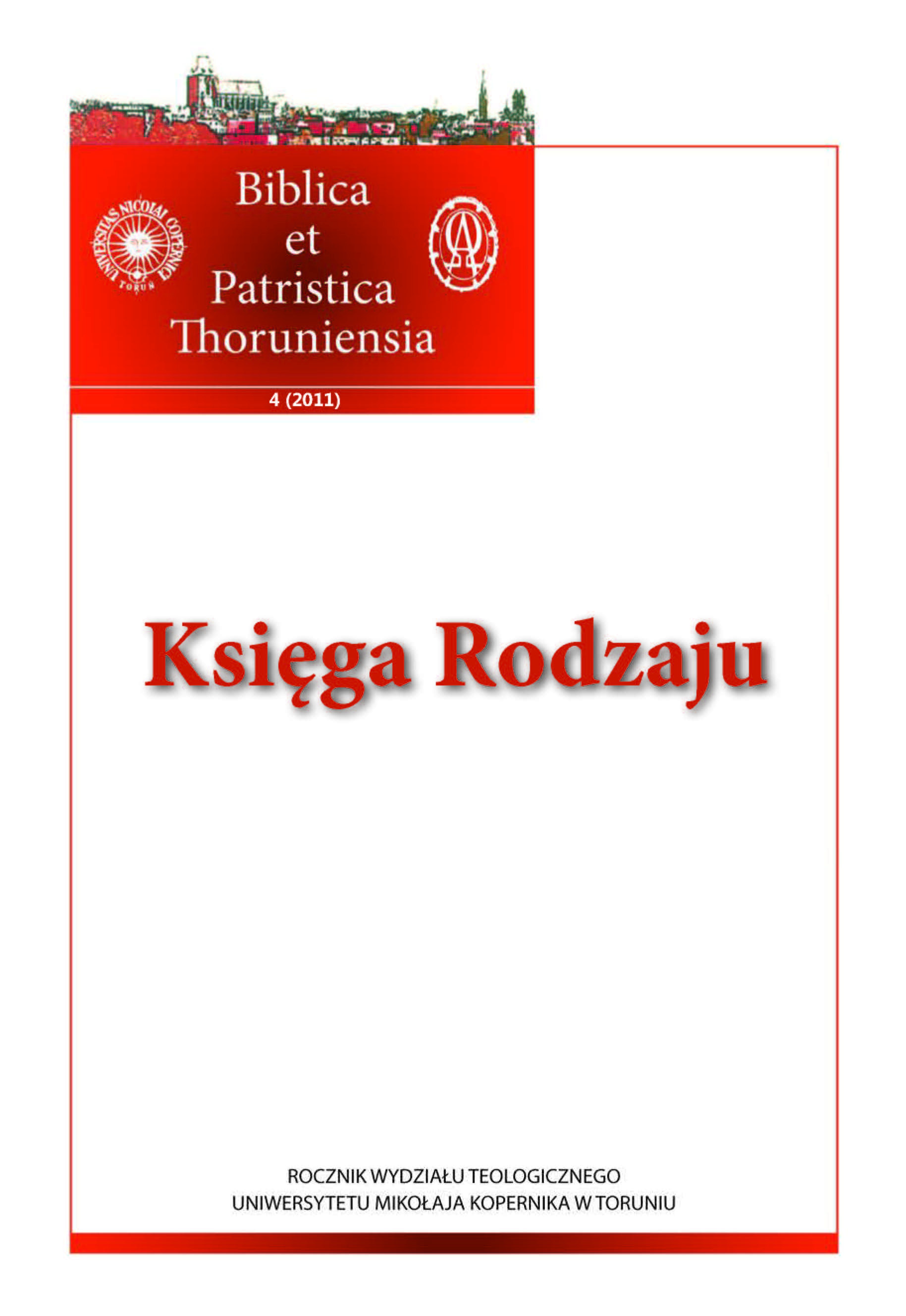Księga Rodzaju jako źródło duchowej inspiracji w Moralia in Iob św. Grzegorza Wielkiego
DOI:
https://doi.org/10.12775/BPTh.2011.017Słowa kluczowe
kluczowe, Grzegorz Wielki, Moralia in Iob, Księga Rodzaju, duchowe doskonalenie, cnota, pokusaAbstrakt
The article discusses a question of spiritual thought of Gregory the Great based only on the Book of Genesis in the Moralia in Iob (Commentary on the Book of Job). According to Gregory the Great, the Holy Scripture is the fundamental Book from which the Christians should draw their ideas of spiritual life. To that purpose the Holy Scripture should be interpreted both allegorically and literally. Gregory the Great applied exactly such methods in his main work Moralia in Iob. That is why the Moralia are the real treasure of spiritual doctrine. Gregory the Great enriches the Commentary on the Book of Job with references to the other biblical books. Among them the Book of Genesis is one of the most alluded to. The fragments, in which Gregory the Great refers to the Book of Genesis, are especially abundant with spiritual content. In the article they are presented in certain consequent order. The spiritual perfection begins with the fight against temptations through which the devil endeavors to enslave the human being with allegation to the earthly goods. Since the human being is spiritually weakened and inclined to commit a sin, it is necessary to confess sins. Then the human being spiritually grows and his/her growing is manifested in the practice of virtues. The practice of virtues leads to the contemplation of the heavenly reality. The devil envies when the human beings spiritually grow, that is why he continually seduces the just person.
Bibliografia
Bielas L., Życie codzienne papieża Grzegorza Wielkiego w świetle jego korespondencji, w: Charisteria Tito Górski Oblata, red. S. Stabryła, R.M. Zawadzki, Kraków 2003.
Casey M., Spiritual Desire in the Gospel Homilies of Saint Gregory the Great, „Cistercian Studies" 16 (1981) 4, s. 311-312.
Dagens C., Saint Grégoire le Grand. Culture et expérience chrétiennes, Paris 1977.
Delhaye Ph., La morale des Pères, "Seminarium" 11 (1971) 3, s. 623-638.
D'Onofrio G., Historia Teologii, t. 2, tłum. W. Szymona, Kraków 2005.
Gillet R., Introduction, w: Grégoire le Grand, Morales sur Job (I-II), ed. R. Gillet, SCh 32 bis, Paris 1975.
Gribomont J., Le texte biblique de Grégoire, w: Grégoire le Grand. Colloques internationaux du Centre National de la Recherche Scientifique, red. J. Fontaine, R. Gillet, S. Pellistrandi, Paris 1986.
Gwiazda G., Życie kontemplacyjne według św. Grzegorza Wielkiego, Warszawa 2001.
Leclercq J., Miłość nauki a pragnienie Boga, tłum. M. Borkowska, Kraków 1997.
Petersen, J.M., The „Dialogues" of Gregory the Great in their late antique cultural background, Toronto 1984.
Porcel M., La doctrina monastica de S. Gregorio Magno y la „Regula Monachorum", Madrid 1951.
Rosik S., Grzegorz Wielki: Dzieła, w: Encyklopedia Katolicka, t. 6, red. J. Walkusz, Lublin 1993.
Starowieyski M., Wstęp, w: Źródła monastyczne, t. 30: Grzegorz Wielki. Księga reguły pasterskiej, tłum. E. Szwarcenberg-Czerny, Kraków 2003.
Straw C. E., "Adversitas" et "Prosperitas": une illustration du motif structurel de la complémentarité, w: Grégoire le Grand. Colloques internationaux du Centre National de la Recherche Scientifique, red. J. Fontaine, R. Gillet, S. Pellistrandi, Paris 1986.
Tomkiel A., Ojcowie Kościoła uczą nas modlitwy, tłum. Z. Zwolska, Warszawa 1995.
Pobrania
Opublikowane
Jak cytować
Numer
Dział
Licencja
CC BY ND 4.0. Posiadaczem prawa autorskiego (Licencjodawcą) jest Autor, który na mocy umowy licencyjnej udziela nieodpłatnie prawa do eksploatacji dzieła na polach wskazanych w umowie.
- Licencjodawca udziela Licencjobiorcy licencji niewyłącznej na korzystanie z Utworu/przedmiotu prawa pokrewnego w następujących polach eksploatacji: a) utrwalanie Utworu/przedmiotu prawa pokrewnego; b) reprodukowanie (zwielokrotnienie) Utworu/przedmiotu prawa pokrewnego drukiem i techniką cyfrową (e-book, audiobook); c) wprowadzania do obrotu egzemplarzy zwielokrotnionego Utworu/przedmiotu prawa pokrewnego; d) wprowadzenie Utworu/przedmiotu prawa pokrewnego do pamięci komputera; e) rozpowszechnianie utworu w wersji elektronicznej w formule open access na licencji Creative Commons (CC BY-ND 3.0) poprzez platformę cyfrową Wydawnictwa Naukowego UMK oraz repozytorium UMK.
- Korzystanie przez Licencjobiorcę z utrwalonego Utworu ww. polach nie jest ograniczone czasowo ilościowo i terytorialnie.
- Licencjodawca udziela Licencjobiorcy licencji do Utworu/przedmiotu prawa pokrewnego nieodpłatnie na czas nieokreślony
PEŁEN TEKST UMOWY LICENCYJNEJ >>
Statystyki
Liczba wyświetleń i pobrań: 952
Liczba cytowań: 0



